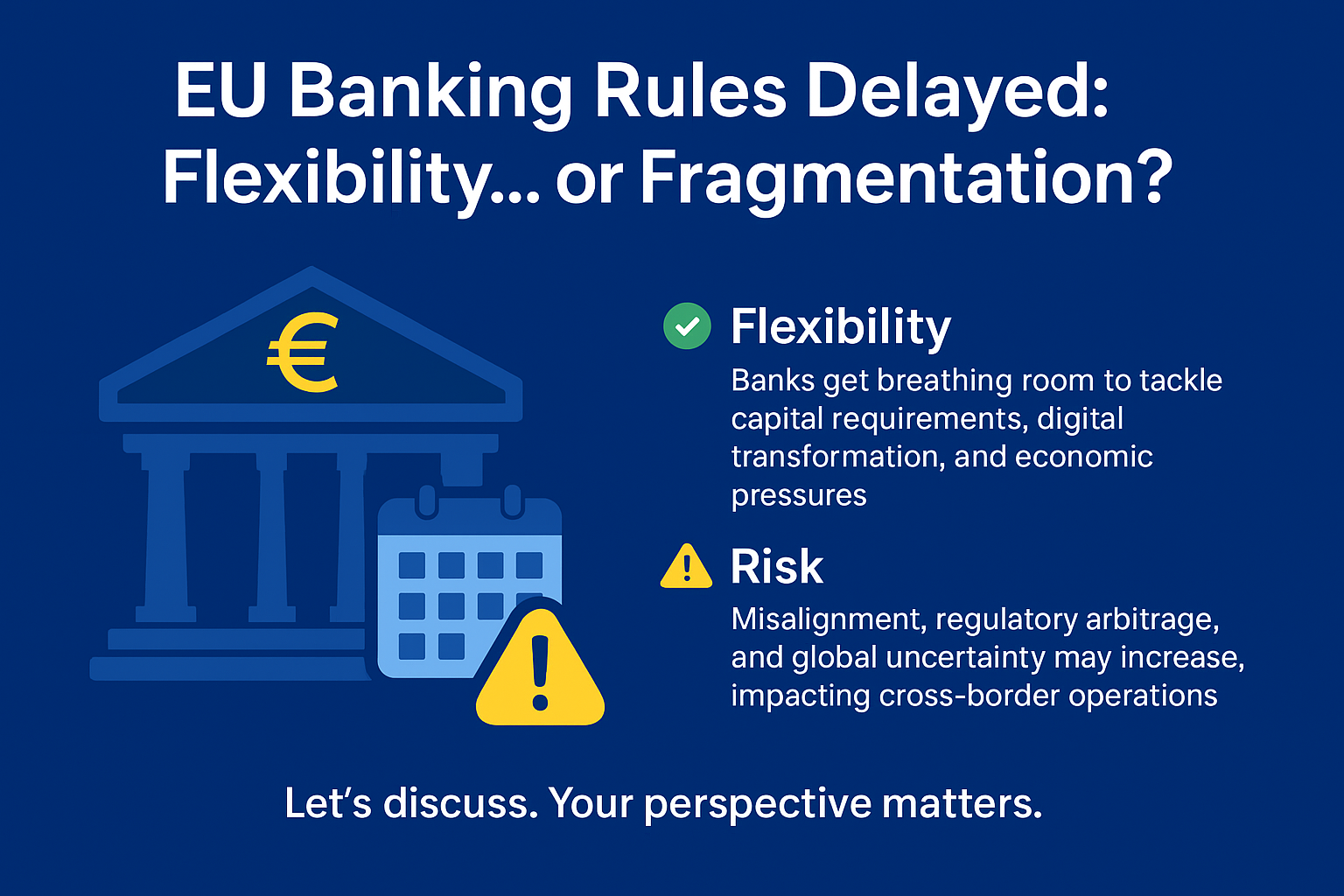When I first read about the EU postponing its latest round of banking regulations, my initial reaction was mixed. On one hand, the financial sector often asks for more time to adapt. On the other hand, I know from experience that delays can open the door to misalignment, regulatory arbitrage, and, ultimately, loss of trust.
The EU has a long history of balancing pragmatism with ambition. Extending deadlines gives banks breathing space, especially as they grapple with capital adequacy requirements, digital transformation, and economic headwinds. But it also sends a signal, perhaps unintended, that rules are negotiable, and that undermines the consistency the sector relies on.
This isn’t just an EU issue. Delays ripple into global markets. If Europe hesitates while the U.S. and Asia move forward, we risk creating a patchwork of standards that complicates cross-border banking. For firms that operate globally, alignment is not just desirable, it’s essential.
In my experience, regulatory certainty can be just as valuable as flexibility. Businesses can adapt to tough rules, but what they struggle with most is uncertainty. Shifting timelines make planning harder, force compliance teams to recalibrate, and push boards to second-guess strategy. Often, that uncertainty costs more than the regulation itself.
So the real question is what comes next: will these delays lead to stronger, more resilient frameworks, or will they add to the complexity of an already fragmented system? I’m curious to hear your perspective—do you see this primarily as pragmatism, or as a potential risk?


No responses yet